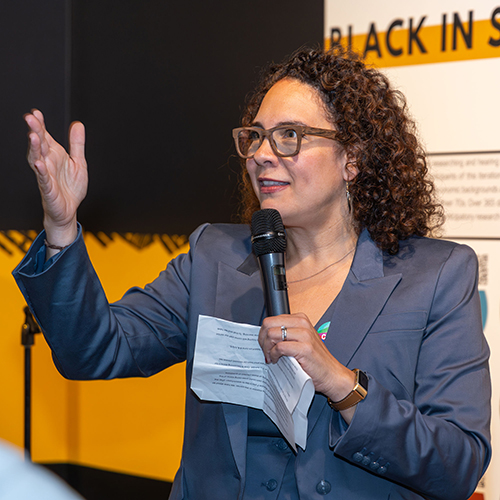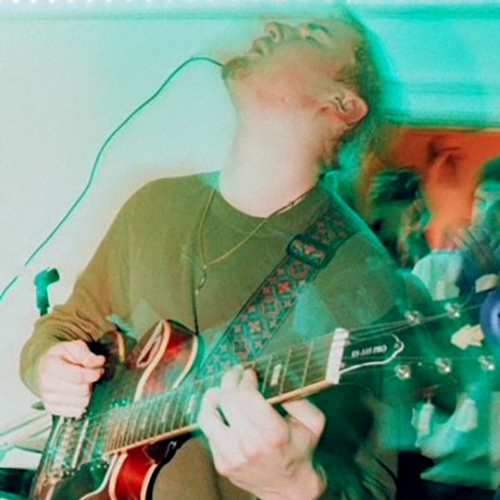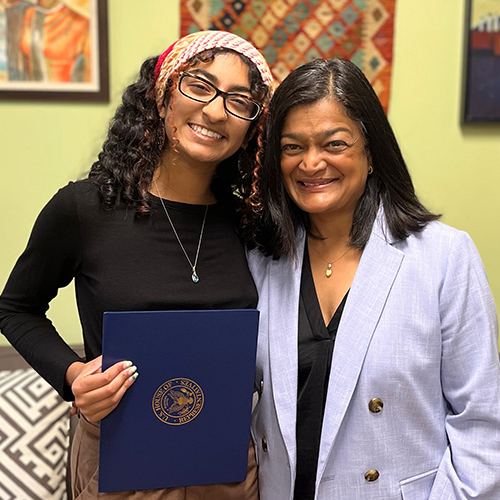“I see him being governor of the State of Washington. Or a senator. I see him being a public servant in the purest and most positive way.”
Professor Stan Chernicoff is talking about UW junior Alula Asfaw, an English and political science major who recently received a prestigious Truman Scholarship. Truman Scholars are chosen on the basis of leadership potential, intellectual ability, and likelihood of making a difference.
Asfaw was a freshman when he came to Chernicoff with a simple yet ambitious idea: to have UW undergraduates help first generation, low-income high school students navigate the complex process of applying for and selecting a college.

The idea became The Dream Project, a course and outreach program that now
involves more than 80 UW students working with six Seattle-area high schools. The UW students meet regularly with high school juniors to discuss SAT preparation and course selection; later they guide the students through the process of applying for college and financial aid.
Asfaw’s idea for the program reflects the challenges he faced in preparing for college. Born in Ethiopia, Asfaw lived in the U.S. briefly as a young child and returned permanently at age six. “My parents felt I would not be able to get a good education in Ethiopia,” he explains. “I came to the U.S. to live with my much older brother.”
Although he wanted to go to college, Asfaw recalls being confused by the application process. “Not having parents who had gone through it, I didn’t know what to do,” he recalls. “I ended up applying for the Upward Bound Project at the UW, and that’s how I ended up at the University and in college more generally.”
Asfaw wanted to provide support for others who might be similarly overwhelmed. He figured that the best mentors for high school students preparing for college would be undergraduates who had just completed the process themselves. Chernicoff helped Asfaw fine tune the idea, suggesting a course with a community service component. “I felt that tying this to a class would lead to a deeper commitment, a required commitment,” says Chernicoff.
The course focuses on issues of equity, social mobility, and educational opportunity. The service learning component includes weekly visits to participating high schools and special on-campus programs for the high school students, all developed by the UW students.
The results of these efforts? The Dream Project’s first cohort of high school participants just graduated, and 70 percent are going to four-year colleges next year. Many others are heading for community college.
Chernicoff is impressed—though not surprised—by what Asfaw and other Dream Project students have accomplished.
“Students are amazing at this university,” he says. “If you give them opportunities, rarely do they disappoint. They are so competent on so many different fronts.”
Asfaw agrees, and insists that his Truman Award reflects not just his own accomplishments, but those of the many students involved in The Dream Project. “For me, this award always sits in the framework of all the people who are committed to the project,” he says.
But it is evident that Asfaw’s leadership and vision are what made The Dream Project a reality.
“Alula sees issues that need to be addressed and mobilizes people to join him and share his passion,” says Chernicoff. “The sky is the limit with this young man. It gives one hope.”
More Stories

Interrupting Privilege Starts with Listening
Personal stories are integral to Interrupting Privilege, a UW program that leans into difficult intergenerational discussions about race and privilege.

Celebrating Contemporary Indigenous Music
Markus Teuton, a musician and citizen of Cherokee Nation, explores contemporary Indigenous music through his academic work and as host of “Indigenous Jazz,” a radio show.

Learning Hard Truths Through Internships
Sana Shetty, interested in human rights law, has a more nuanced understanding of potential careers thanks to internships.